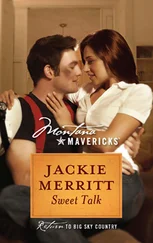I wish to trap the small insect you described as comely where it has landed on your shoulder.
Oh — of the genus which includes the beetle of which there are thousands? But this is the only one with seven or nine marks on its wing.
Nine marks. I make good progress but you will not bless the work.
Please — there should be more than ample room on this escarpment for both of us.
Room for twenty more dr y-eyed angels such as yourself?
You must practice the writing of your name. I have showed you the E. You must form it in the air every day, and on the ground if you are lacking paper.
A noble letter, E.
If you can’t write your name, you will be beholding to many.
Beholding to you, perhaps? In reading, the letters bend and float away and will not stay.
Reading is like a sea voyage, you either attend to it and see the world, or you stay at home. Tristram Shandy was tossed over many a ship, which is how I at last learned the skill.
You know nothing about the sea — you never teach it.
Nothing that is known about the sea is true.
So you say.
I shall teach you just the beginning: How the Sea Was Formed. A carpenter cuts a king’s worth of trees and lays them flat to each other, then nails them together with the teeth of all the birds that fly which is why so few birds have teeth now. When he has finished, the wood makes the bridge from this land to the next. Still, it must be painted. The carpenter has blue powders left over from coloring the sky. The strength of this paint to adhere to the air is very great but the power of it to stick to the wood is so much more. What is left puddles before the carpenter can put down rags to stop it. In most places, where the blue collects, it shines darker than the sky but elsewhere it runs into the sky and joins it. Under the strength of this blue, the birds’ teeth loosen and fall out and then the teeth sink into the sea, only later to float up to the beaches as shells. The boards themselves, as blue and as lively as they are, come loose and change into the rafts that drift by the drowning who can’t find the bridge for all the blue color.
I would not guess it.
Man cannot fly but he can swim.
Some, I have heard. I can’t. Water has always crept up and filled my shoes with trouble or taken our roof. Only when it buoys a boat do I want to venture upon it. My Ma screams in fear of it.
Your Ma has been taken too much by it.
Some sailors have had her, even from the far seas, and roughly too. I think it is why she loves the rope so, she dreams of belaying herself to land at last.
If I did not have these curls to keep, I would show you how gently the waves lift and hold your arms.
You will always have curls to mind.
I will.
Dust to dust, as the church says, not water to water.
Water to water.
I get seasick just hearing you say that. The way you sing it.
Water is ever more prevalent than earth. How many days can you journey by sea? How many by land?
I do not journey these days. I am a poor boy who studies but what you tell him.
Let me say then I think it is time for you to immerse yourself. Listen to my song. Come, come—
But your curls—
Over here. Through the rocks. The song.
There are currents. There are terrible fish. The waves—
Take my blasted cane! Waves to hold you, waves to — ah, Winthrop.
Snake! Snake!
Unbanded. I believe it is harmless, but you can’t be certain about one so orange along the tail. Hold it tight about the head, or it will bite you. Count the colors as it dies.
It’s dead, Winthrop. You’re going to die.
Don’t put fear into him. He might tell his father and his father will have you jailed for stealing his lessons.
The boy is slow, and will be slower.
Leave the snake in the thicket and go along. That’s a fine boy.
A boy with a fine purse.
The water—
I want no more to do with water, I want a berth on shore, with the whale’s bones and a woman who can carve its bone where I instruct. It is your own Cap’n Peters whom I fear has drunk the bone down.
Your Ma is ill over Cap’n Peters.
Cap’n Peters is ill over you. I will give you my name, make you a fortunate wife with an honest hearth.
The time is near when a woman will not need to set her hand in contract. Why not give her merely a set of numbers as can be found in any book to suffice for a term of possession, and not the name of a man? There are surely enough numbers, and more.
You are certainly a clever teacher and will make a clever wife.
Cease tempest-crying over that snake bite, boy, and press the burdock against it. Keep your hand over the wound where it swells too, that’s right.
You know so much about these things?
You must address me with belief in your voice.
Belief is a learned thing, like writing.
You do not learn your way to me.
Ways open daily like routes between blocks of ice athwart the bow that the brave sailor faces so often before his triumphant return.
Remove your hands from me. I will have the boy’s father lash your back to ribbons, with Cap’n Peters providing the whip.
Are these Dead Man’s Fingers?
Brother! I told you to stay away and ask questions later.
Point them toward the sky. Pray, point them up to where the blue clouds await their carpenter.
She is full of cant. You talk to her. I’ll see you later at Ma’s.
What do you two whisper of?
Of how prettily you speak of carpenters and clouds.
Thank you. Your brother is less sure of his words.
He is unused to women, having been at sea. That makes him a bad judge of their wiles. I know women from my Ma.
What about us is wily? I am as open as a hand. As for you, it’s not the Dead Man’s Fingers you want, it’s the full hand of a life you can spend. Here, open your own.
What ho! It’s as hard as marble, with the blue of a wave inside.
The whale’s eye. It should be dry and gone by now, eaten by cats. I found it in amongst the sycamore leaves, left from when that poor whale was taken asunder. Have it and study it. I like the way you laugh.
My brother is not watching? He will see nothing?
Nothing, I swear it. He cuts his thumb sawing on a stick as if it were bone, and sucks the wound.
As tractable as a dog, she was.
A hound, I think. A harrier.
Likening me to dogs! When I think of all the trouble you’ve been.
Ma, don’t talk. You’re making bubbles of the blood.
I tried to return you after the theft but the family was gone, in grief I suppose. I was in Hampshire or Maudin’s, a’laundressing, or making the swords’ scabbards, or looking to the curling goods. I remember the sea and the stink of civet cat. It was after I fell in — and out — with the maharajah.
The leech that was left for her — find it. I think it’s crawled beneath the chest.
The man kept civet cats, fifteen of them. For the perfume. Baltrick was the name.
Not Kinnell?
Kinnell once gave me a trinket beaten out of gold. He’s the one who urged your return. At Godspeed, he shouted, over your infant cries. It could’ve been Reverend Baltrick. Or the maharajah.
No water — let her speak. Her lips still move.
The stealing wasn’t hard. A loaf under the blanket in place of you.
Which of us is stolen, Ma?
They wouldn’t pay my price to fetch you back. Or they didn’t receive my sign. They went sailing after the maharajah.
Peters’ route? The high one?
Don’t ask her more, she can’t speak.
She speaks.
A cow bellows better with a beet stuck in its throat, she struggles so.
What, Ma?
I wanted lads to fetch and cover me on the occasions when I had drunk overmuch, and to carry water that I should not have to do it myself with all my fine husbands.
Читать дальше












